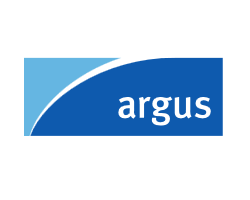Consolidation Key to Lift Investment in U.S. Coking Coal

November 9, 2018 - Consolidation is critical to reviving investment in the U.S. coking coal sector, Knighthood Capital senior analyst Adam Zirkin said at the Met Coke Summit in Pittsburgh today.
And he urged U.S. producers to better leverage the limited availability of their high-volatile coals.
A disconnect has emerged in the U.S. coking coal market, with producers enjoying high prices and profit margins but still struggling to attract much additional investment, Zirkin said.
He pointed to Coronado's recent IPO as an example of a business with a strong reputation struggling to attract a lot of interest from the financial sector.
The disconnect has become a source of regular frustration among market participants, particularly as it limits their ability to serve high domestic and seaborne demand for U.S. coking coal. All the so-called easy coal was brought back on line in the past two years, and the development of further reserves would require significant capital.
Investors are yet to build confidence in the U.S. coking coal market, viewing the forward curve with skepticism and wary of seaborne prices eventually dropping, Zirkin said. And when the coking coal market does go through its next downturn, some U.S. producers are in a more vulnerable position because of the rate at which they are translating high profits into high dividends for their shareholders. "Balance sheets were full of cash during the last downturn, which helped them get through it," Zirkin said, noting a contrast with now.
Zirkin pointed to consolidation as one of the primary ways for the U.S. coking coal industry to protect its earnings and boost investor confidence, particularly given coal businesses are not familiar assets to many of the investors being targeted. "The U.S. market is more fragmented than it was a few years ago, there are more producers than there were before."
Stakeholders in producers Alpha Natural Resources and Contura Energy yesterday approved a merger of the two companies — a move that will create the largest domestic coking coal producer. From a market perspective, mergers typically have little impact on coking coal prices, but they do go some way towards creating a more investor-friendly landscape, Zirkin said.
Bankruptcies have also been in the air lately, since Mission Coal and 10 of its affiliates filed for Chapter 11 bankruptcy protection in October. "Bankruptcies are actually a long-term bullish factor" for industries, Zirkin said, noting that they essentially take costs, reduce them and invite more capital back into the market.
Crucially, U.S. coking coal producers are sitting on extremely valuable high-volatile coals, whose scarcity relative to global demand could be better leveraged as part of a strategy to win over investors, he said.
"In 2013-18 a significant deficit has built up for U.S. high-volatile coking coal. It's grown increasingly tight in a way that the wider seaborne market hasn't so much," Zirkin said, anticipating that in the long term prices for high-volatile type A (HVA) coal will be either equal to or higher than prices for low-volatile material, with high-volatile type B (HVB) lagging not far below.
Argus last assessed HVA prices at $213.50/t fob Hampton Roads. The Argus fob Hampton Roads assessment for low-volatile coking coal is currently at $202.50/t, while the daily fob Australia assessment for premium hard low-volatile coking coal is at $217.40/t.
"U.S. high-vol coals are so necessary and so short [in supply] that it's just a matter of time before we start to see some of the steelmakers integrating with mines. And then it's game, set and match," Zirkin said.

